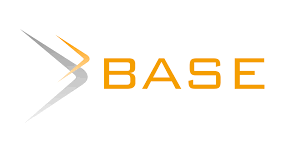Implementasi Etika Bisnis Islam Dalam Pelayanan Perbankan Syariah (Studi Kasus di Bank BSI KCP Jakarta Salemba)
Keywords:
Islamic Business Ethics, Islamic Banking Services, Islamic Banking, BSIAbstract
In the Islamic banking industry which is currently growing rapidly, it is still not balanced with human resources who have a background in Islamic competency that is adequate to the needs and standards of market expectations. This study examines the implementation of Islamic business ethics in Islamic banking services with a case study at Bank Syariah Indonesia (BSI) KCP Jakarta Salemba. Using a qualitative approach with a descriptive method, data collection using interview, observation, and documentation methods. The focus of this study aims to analyze the implementation, usefulness, and supporting and inhibiting factors of Islamic business ethics in Islamic banking services. The results of the study indicate that BSI KCP Jakarta Salemba applies the principles of Islamic business ethics, namely unity, justice, free will, responsibility, and truth. These principles are reflected in daily operations. This study also found significant benefits, including increased customer satisfaction and loyalty, better employee work motivation, and a stronger institutional reputation. However, there are challenges such as technological constraints, high workloads, and limited customer understanding of Islamic banking products. This study emphasizes the importance of continuous improvement in the application of Islamic values to maintain the competitiveness and sustainability of the Islamic banking industry. These findings contribute to a broader understanding of the application of Islamic business ethics in the financial sector, especially in the context of Islamic banking in Indonesia. The results of this study strengthen the theory that the application of Islamic values in Islamic banking services not only improves service quality but also strengthens long-term relationships with customers.








